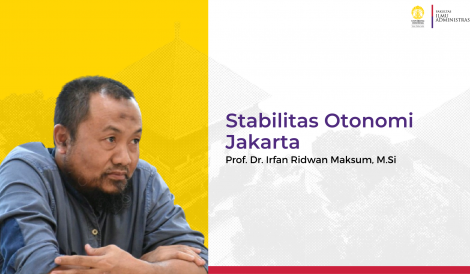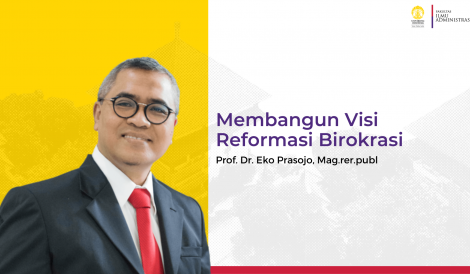As a developing country, Indonesia recognizes the importance of fostering a stable investment environment to promote healthy economic growth. To attract investor, it is quite popular to offer lower income tax rate. However, it shall be alongside with a tax certainty. In recent years, the Indonesian government has successfully reduced income tax rates; the corporate income tax rate has reduced from 25 to 22 percent and the SME tax rate reduced from 1 to 0.5 percent. However, the uncertainty arising from complex regulation must be addressed to fully meet the needs of investors.
Investors require a clear understanding of the tax burden associated with their investments before making critical decisions. The complexity of tax regulations adds an additional cost for investors, who must navigate the intricacies of the system and accurately predict their after-tax returns. The existence of complex tax regulations, often accompanied by special provisions and exceptions, creates uncertainty regarding the appropriate application of certain rules. Although a complex tax system may provide “benefits” to certain taxpayers, the intricate requirements can lead to uncertainty regarding future tax liabilities if those benefits are canceled by tax authorities. Additionally, investors typically evaluate the overall merit of a tax system rather than focusing on specific provisions. Thus, increased uncertainty in the tax system tends to make investors more risk-averse, placing greater weight on tax risks rather than potential benefits and reducing their willingness to invest in potentially risky business.
How complex is Indonesian tax system now? While measuring tax complexity lacks a universally accepted method, it can refer to widely recognized benchmarks for insights. According to the tax complexity survey conducted by www.taxcomplexity.org in 2020, Indonesia ranked 25th out of 68 countries in terms of having the most complex tax system (compared to 2nd in 2018 and 5th in 2017). Additionally, according to www.tax-index.org’s 2018 report, Indonesia was listed as the 6th least tax-attractive country out of 100 countries. Moreover, data from the World Bank (data.worldbank.org) indicates that in 2019, Indonesia ranked 97th out of 188 countries in terms of the time required to prepare tax returns and pay taxes (compared to 84th in 2018 and 89th in 2017). These surveys collectively highlight the perception of complexity within the Indonesian tax system.
According to Hoppe et al. (2021), complexity in tax regulations stems from various factors, including frequent changes and excessive details. Frequent changes to tax regulations unintentionally contribute to their complexity, making it difficult for investors to accurately predict their after-tax returns. The continuous adjustments in regulations undermine the predictability of the future tax system. Furthermore, an abundance of details, such as numerous rules, exceptions, and cross-references, creates uncertainty among investors regarding the applicability of certain tax provisions. It opens the door for potential tax corrections by authorities.
Over the past decade, Indonesia has witnessed significant changes in its tax laws, including the introduction of the tax amnesty law (2016), the implementation of the job creation law (2020), and the enactment of the tax laws harmonization law (2021). While these legislative changes were intended to stimulate economic growth by providing incentives for investors, they have inadvertently resulted in a more complex tax regulatory framework. This complexity poses challenges to tax certainty, which is essential for fostering a stable investment environment in Indonesia.
In the first place, frequent modifications to the Indonesian tax regulations have hindered long-term predictability, making it difficult for investors to accurately forecast their after-tax returns. The constant adjustments in the regulations undermine the confidence of investors in the future tax system, adding an element of uncertainty to their investment decisions. Moreover, the excessive details within the tax laws, characterized by numerous rules, exceptions, and cross-references, create confusion and ambiguity regarding the applicability of certain tax provisions. This lack of clarity opens the door for potential tax corrections by the authorities, further increasing the uncertainty faced by investors.
Furthermore, the expansion of the tax laws has resulted in a more intricate and convoluted regulatory landscape. While the recent tax laws offer certain incentives for investment, they are often accompanied by specific limitations and conditions. These detailed limitations add complexity and reduce the overall understandability of the tax laws. Investors may find it challenging to navigate through the multitude of provisions and requirements, which can deter their willingness to engage in investment activities.
In order to overcome these challenges and promote a climate of tax certainty, it is crucial for the Indonesian government to contemplate implementing a wise and far-sighted strategy towards tax regulation. This approach involves designing a tax system that is generally investment-friendly and remains stable over time. Simplifying the tax regulations by reducing less necessary specific provisions, streamlining rules, and providing clear guidelines will contribute to a more transparent and predictable investment environment. By prioritizing tax certainty, Indonesia may attract greater levels of investment, fueling sustainable economic growth.
_______________
Fernando Siahaan
Vienna University of Economic and Business
fernando.siahaan@wu.ac.at
Written in collaboration with Dr. Maria R.U.D. Tambunan, a lecturer of Department of Fiscal Administrative Science, Faculty of Administrative Science, Universitas Indonesia.









